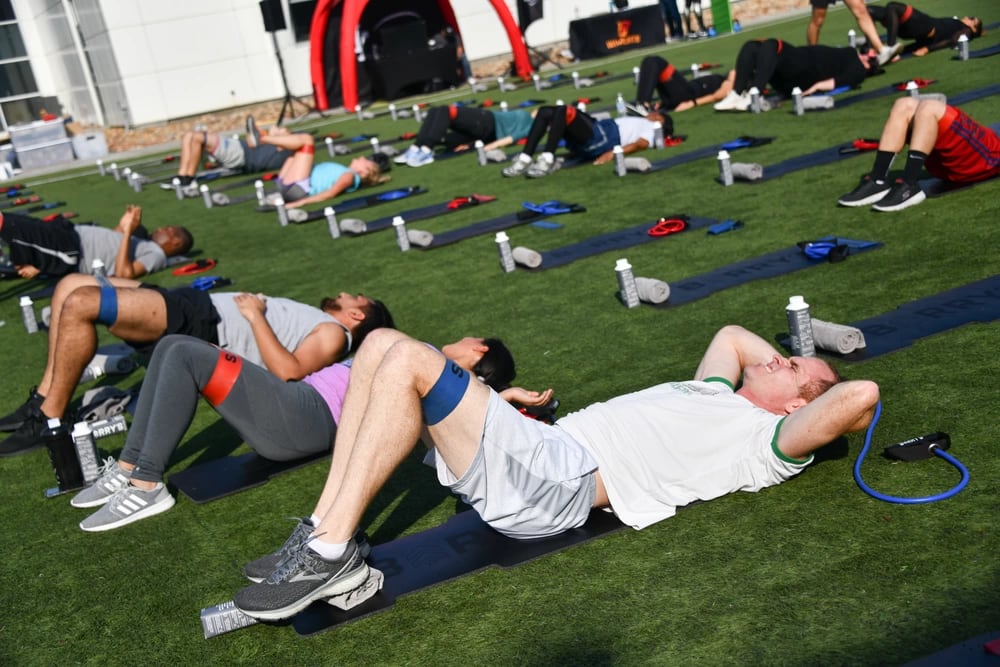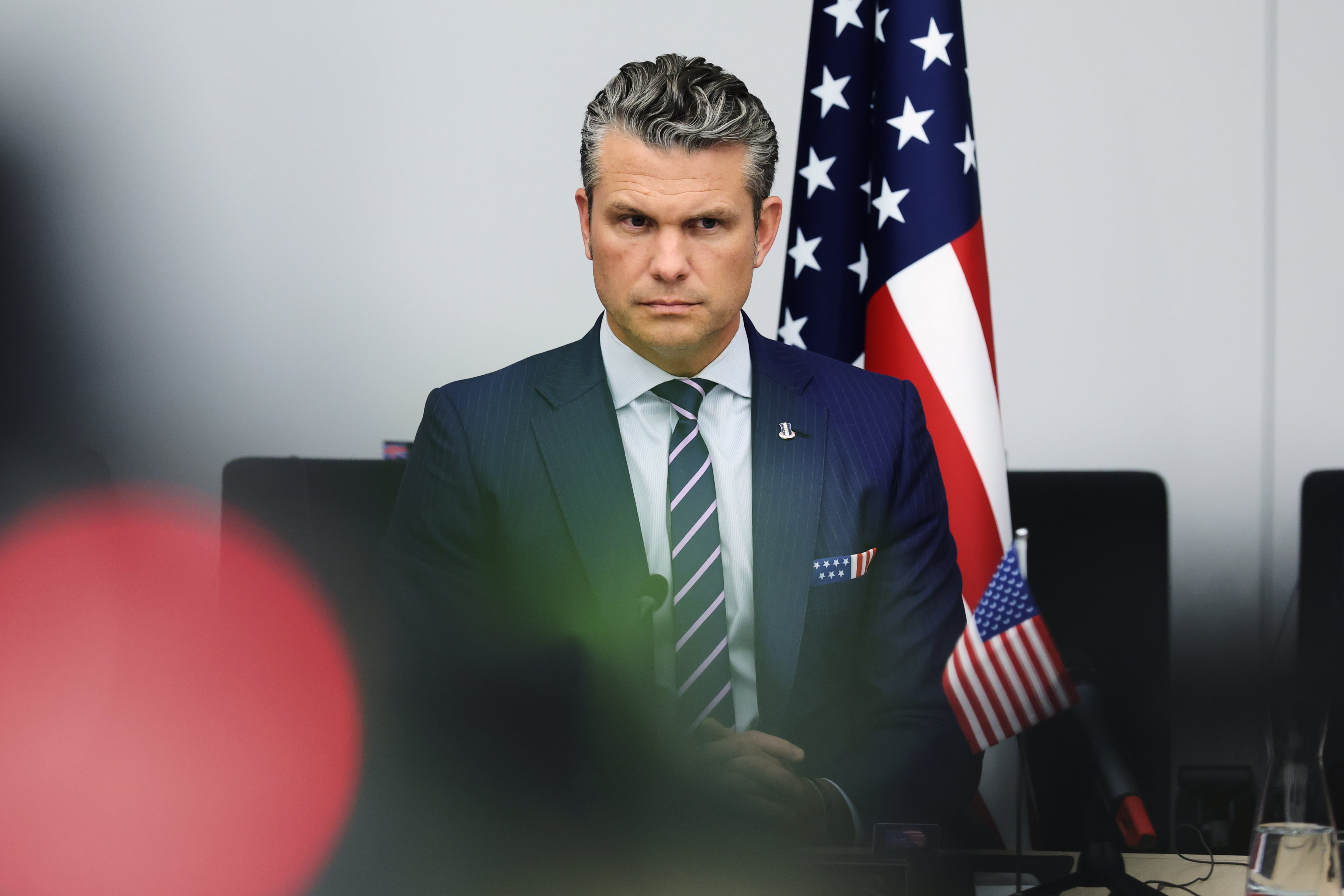This story was updated May 27 at 7:30 p.m. to include information about the wearables to be used in the Space Force’s fitness study.
The Space Force has kicked off a two-year pilot program to see how well it can manage the fitness of its troops with a much lighter touch than is usual in the military.
Through June 30, the U.S. military’s newest branch is asking members to volunteer for a study that monitors their cardiac, respiratory and musculoskeletal health using Garmin fitness trackers. If the initiative goes well, it could pave the way for the Pentagon’s first large-scale system for tracking readiness using wearable tech instead of annual fitness tests.
“We’re really trying to pioneer for all of DoD a better way to support our members throughout their lives, during their service and beyond,” said James Christensen, who runs the study at the Air Force Research Laboratory, on a podcast episode the service released Tuesday.
The program is one of three pillars in the Space Force’s new plan to promote force-wide health that was formally announced Wednesday.
The effort is to drive home the proposition that fitness is more than hitting the gym. It emphasizes a more holistic range of “preventive health” habits to help avoid illness and complications and promote mental wellness, like good nutrition and sleep practices. And it includes an educational component, to add those concepts into training that already exists.
“I think physical fitness not only improves our cognitive abilities at work, but it will decrease absenteeism, it will increase happiness — there’s all kinds of benefits,” Chief Master Sergeant of the Space Force Roger Towberman said on the podcast.
The Space Force’s willingness to break the mold acknowledges how ubiquitous wearable fitness tech has become in modern life, and the hope that the service can avoid the pitfalls of other military fitness regimes that prioritize standards over performance.
Because space operations entail more desk work — like sitting at a satellite control console or monitoring missile launch data on a computer — than other military missions, Space Force officials want to judge members on general wellness instead of specific strength and endurance exercises.
Any uniformed Space Force guardian can join the wearables study. Those who do will be exempt from regular physical fitness testing while they participate.
PT tests are suspended for all guardians until July 1 while people decide whether to sign up for the study. Those who don’t opt in must resume annual tests as usual by the end of September.
Over the course of the pilot, guardians will be asked to don their trackers during exercise so the Space Force can collect that data from the device manufacturers.
Researchers will look at how intensely people exercise, based on the minutes they log at an elevated heart rate, service spokesperson Maj. Tanya Downsworth said. They will also track how much oxygen a person’s body uses during a workout, a metric known as VO2 max, each month.
Guardians have to record up to one minute of push-ups each month as well, Downsworth said.
Troops won’t be punished for their results, but if the service finds that its approach is hurting a guardian rather than helping, or if a guardian isn’t following the terms of the study, they may be asked to drop out.
Vice Chief of Space Operations Gen. David Thompson, the service’s No. 2 officer, warned troops not to overdo it.
“The standard is not like, ‘Wow, I’ve got to go to the gym five times a week and work out [for] two hours,” he said. “The standard really is suited to what we … want people to do healthily anyway — about three times a week you’ve got your heart rate up for 30 to 45 minutes.”
For now, those who join the study have to wear devices issued by the Space Force. If a participant already owns a Garmin product thay is part of the program, they can use their own.
The service had considered more automated options for tracking its members’ health but scaled back due to privacy concerns.
“Participants are only required to wear their device during purposeful physical activity, and all other use is optional,” the service said, noting that it won’t collect GPS data.
“Data imported from the wearable device manufacturer will be limited to fitness data required for the program and be stored in a system that has been evaluated for cybersecurity compliance” and allowed to operate on military networks,” it added. “Only limited study personnel with a need to know will have access to the information.”
People who work in sensitive compartmented information facilities should talk to their supervisor about whether they can wear their device into those classified areas, but that’s not required to be in the study, Thompson said. Some guardians overseas won’t be able to participate because of regional security concerns.
Guardians who don’t join the study will continue taking the Department of the Air Force’s fitness tests, a battery of running or walking and muscular strength and endurance exercises like pushups and situps. They must also continue to meet the Air Force’s body composition standards, which changed to include a waist-to-height ratio measurement last month.
To help all guardians, regardless of the path they choose to follow, the Space Force is standing up support teams focused on nutrition, movement and mental health. Those groups are slated to be fully staffed, largely by civilian employees, at each Space Force base by early 2024.
“We believe that this is a gateway to cultural changes within units, where we can gamify fitness, where we can have that important friendly competition between offices, between individuals,” Towberman said. “There’s never been a successful military in history that didn’t physically train together as teams.”
Rachel Cohen is the editor of Air Force Times. She joined the publication as its senior reporter in March 2021. Her work has appeared in the Washington Post, the Frederick News-Post (Md.), Air and Space Forces Magazine, Inside Defense, Inside Health Policy and elsewhere.





